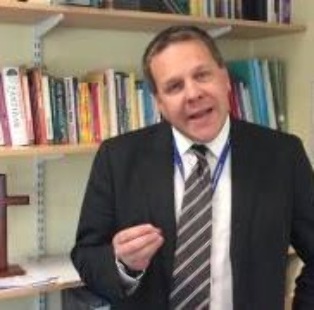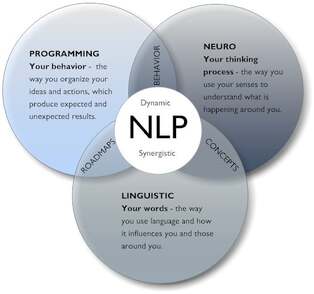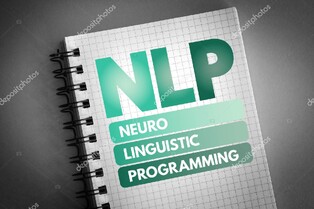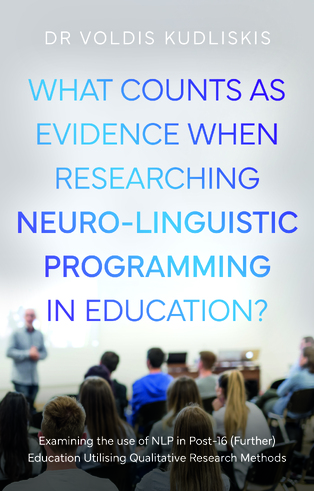



Dr Voldis Kudliskis a compassionate coaching professional
Coaching with excellence in mind! ©
Building confidence, competence and capacity with creative coaching! ©
Unsolicited Client Testimonies

Emma
"The [coaching] sessions were very good as they brought my emotions out. I could talk more about what I needed too. You helped me bring things into the open. You helped me see things in a different light. I became impressed by the way you helped me focus on my [positive] memories rather than my sadness."

Elma S; Musician
"You know, the best thing you ever ‘taught’ me was NLP! I never knew I was such an anxious person (even though it has been obvious through my life). This technique has helped me tremendously and I am so grateful that you shared that with us in those extra sessions. It’s made me who I am today."

Eileen; Volunteer
"I am actually really enjoying our sessions, find them confronting at times, but on reflection I am beginning to understand what makes me what I am today. It is comforting to begin to realise…..I’m not really a failure. I’ve done okay, often under difficult circumstances, and that makes me feel pretty happy. Thanks for enlightening me. You have been great. I mean that sincerely."

My Coaching History
I have been a fully-certified Coaching Professional since 2009. I have been awarded a PhD in Psychology (coaching) and Education by the University of Exeter, England. I also have a Diploma in Coaching (Education) awarded by Newcastle College, England. Furthermore, I have been awarded an NLP Practitioner Certificate by the MIND Organisation. I was a finalist in the International NLP Awards in 2017.
I have been helping clients in both England and Spain to achieve their personal and professional goals. The essence of my work is to facilitate self-growth and transformational change by helping you identify the core challenges and setbacks in your life, so that you can overcome them with confidence. I specialise in active listening and challenging perspectives in a caring and empathic manner. You and I create personalised plans and identify the most appropriate psychological tools to guide you forward and achieve your desired goals.
Testimonials from Other Professionals

Former Director NCSL
"Voldis is an outstanding teacher and his students achieve outstanding results. This is a judgement endorsed by Ofsted. Voldis brings to his professional skills as an NLP and coaching expert in his role as leader and educator. Many students and staff have benefitted enormously from his expertise in these areas and he has pioneered a number of innovative and impactful projects utilising both his academic credentials as well as his practical coaching proficiency."
Ray Tarleton
Former Director National College of Secondary Leadership, Nottingham

Head Teacher
"Voldis empowers students, parents and colleagues with an understanding that they can take responsibility for decisions that will impact them positively....... His willingness to provide time to listen to staff, students and parents is an important part of what make Voldis a valued and respected colleague. His coaching skills are exemplary."
Phil Randall
Headteacher, St Peter's Church Aided School, Exeter

Head Teacher
"[Voldis] is the personification of professionalism and dedication to the people he works with......... Using his expertise in coaching, he is able to work with [students] and support them to achieve results that they are capable of and deserve...... My own practice has benefited beyond recognition as a result of seeing Voldis teach, manage and lead others."
Richard Jenkins
Headteacher, Porth Community College, Wales
International Peer-reviewed Articles

Living educational theory (LET) research provides practical enquiries into education in real life contexts. This form of research provides a platform for examining coaching, particularly in the context of students’ perceptions of self, education and the value of coaching. Coaching is purported to be a powerful developmental tool. Concepts and models of coaching are briefly presented. Thereafter, a description of a pilot study into how student perceptions of self, education and the value of coaching may contribute to engagement with learning is provided. The study utilised a single-method approach (open questionnaire) that sits within the interpretivist paradigm; specifically LET. It is a single-site, multi-voice study capturing perceptions of students in post-16 education, situated in a rural community college in England. ‘Positions of Consensus’ are explored, as are individual narratives which suggest that coaching is perceived as advantageous and may be helpful at some psychological level, in enhancing students’ engagement with learning in post-16 education. Deductions provide some speculative evidence that coaching may aid engagement with learning in this specific context. It is suggested that coaching models and strategies such as neuro-linguistic programming (NLP) could be implemented, via a cost-effective training programme, in post-16educational settings to enhance engagement with learning and to drive a culture of excellence in schools and FE colleges.
Asian Journal of Science and Technology. 14 (4), p.12488-12496.

Living Educational Theory (LET), which sits within the interpretivist paradigm, provides pragmatic enquiries in real life educational contexts. This form of research provides a platform for examining four suppositions and two Techniques of Change associated with neuro-linguistic programming (NLP) particularly in the context of boys’ engagement with learning. NLP is proposed as a powerful personal development method. However, the credibility of NLP is questioned due to limited research-based evidence. Four NLP suppositions and two NLP Techniques of Change are examined. Thereafter, a description of an exploratory study into how these suppositions and Techniques of Change may enhance engagement with learning is provided. The study utilised a single method (semi-structured interview) approach. It is a single-site, multi-voice study capturing the perceptions of NLP, for boys in post-16 education, situated in a rural community college. ‘Positions of Consensus’ and individual narratives are explored and suggest that four suppositions and two Techniques of Change may enhance boys’ experiences and perceptions about learning. Possibly these NLP strategies may be helpful at an indirect level in enhancing boys’ engagement with learning in post-16 education. Inferences provide tentative evidence that these suppositions and Techniques of Change may aid engagement with learning in this specific context. It is suggested that these NLP suppositions and Techniques of Change could be implemented, via a cost-effective training programme, to enhance engagement with learning and to drive a culture of excellence in schools and FE colleges.
International Journal of Research, 11 (3), p.137-159.

The purpose of this exploratory study was to examine whether some personal inner and outer barriers found in coaching are reflected as personal inner and outer barriers to learning for boys in a post-16 education setting. The study predominantly sits within the interpretivist paradigm. This was an action research focus group case study that utilised a single qualitative methods approach. Participants, boys, engaged in a semi-structured interview that specifically examined their views relating to some personal inner and outer barriers to learning. It is a single-site, multi-voice study. ‘Positions of Consensus’ and individual comments are presented in relation to experiences of some inner and outer barriers to learning and the impact of these on engagement with learning. The results suggest that some inner and outer barriers identified in coaching can be transposed to aid understanding of some inner and outer barriers to learning. The outcome of this research provides some speculative evidence for boys, educationalists, managers, teachers and parents that some inner and outer barriers to learning impact negatively on engagement with learning for year 13 boys (boys between 17 and 19 years of age).
International Journal of Progressive Education, 18 (3), p.71-90.
Book Publication
Discover a groundbreaking approach to transforming post-16 education. Drawing on 25 years of teaching, action research and qualitative studies, this work explores the powerful impact of neuro-linguistic programming (NLP) as an education coaching philosophy. Unlike traditional academic texts, this book offers a lively, accessible look into how NLP can enhance students’ learning experiences, focusing on their voices and perceptions.
Through real-world insights and practical coaching processes, the book reveals how teachers, and students themselves, can apply NLP techniques to foster motivation, confidence, and success in education. It’s a must-read for teachers, school leaders, and education professionals eager to innovate and improve post-16 education. Whether you’re looking to deepen your understanding of educational theory or seeking practical tools to support student achievement, this book provides a compelling blend of research, real-life examples, and actionable strategies.
Join a movement to revolutionise education by harnessing the power of NLP—empowering students to reach their full potential and creating more engaging, effective learning environments. Perfect for anyone passionate about making a positive difference in education today!

My aim is to equip school and college leadership teams, department heads, and classroom teachers with tools that are both effective and ethical, supported by robust research across diverse contexts. I hope you’ll consider purchasing a copy and, importantly, share it with colleagues to promote evidence-based practice school-wide.
Purchase here:
Book Review
I’ve been reviewing What Counts as Evidence when Researching Neuro-Linguistic Programming in Education? and what stands out immediately is its practical and research-informed approach. This isn’t just an academic text; it’s a bridge between rigorous qualitative research and real classroom practice in post-16 education.
What makes this especially compelling:
- Draws on 25 years of teaching, action research, and qualitative studies
- Focuses on students’ voices and lived learning experiences
- Offers actionable NLP coaching techniques to foster motivation, confidence, and achievement
- Balances theory with accessible, real-world examples
- Empowers educators to innovate and enhance post-16 learning environments
This book is ideal for post-16 educators, education coaches, and school leaders who want actionable tools grounded in rigorous qualitative research, a resource that balances scholarship with real-life classroom applicability.
Warm regards
Terry Solomon
Manhattan, New York – 13th February 2026
Recent Blogs and Musings
Read through my latest blog posts and feel free to comment on them if you like.

Why learn so much?
In a small town perched between fields and trains, there stood an old clockmaker’s shop with a sign that read: Time Teaches. The owner, Mr. Lio, kept the shop exactly as it had been for decades, shelves lined with gears, journals, and worn tools. One afternoon, a curious student named Selah walked in after school, shoulders heavy with doubt. “Why learn so much?” Selah asked. “I’ll never use half of this stuff anyway.”
Selah rolled the watch in their palm. “But what about math I’ll never use, or history I’ll forget?”
“Learning is a garden,” Mr. Lio replied. “You plant seeds you think won’t matter, yet one day a seed of algebra might help you optimize a schedule; a lesson in ancient ships could inspire you to navigate a tough conversation. The point isn’t memory, but the ability to grow new branches from old roots.”
To illustrate, Mr. Lio pointed to a corner shelf where a broken clock lay. “I fixed it not because I needed it yesterday, but because understanding how it broke teaches me how it works. Every failure teaches a steady path forward.” He handed Selah a small notebook. “Keep notes. When you look back, you’ll see patterns—how problems form, how hints lead to solutions, how people change when they learn.”
21st February 2026
NLP and Curiosity lead to "Painless" Learning
I believe NLP offers a coaching philosophy that helps struggling students engage with learning without unnecessary pain. In my experience, Neuro-Linguistic Programming emphasises choice, awareness, and rapport. By teaching students to notice their patterns of thinking, language, and behaviour, we can replace self-defeating scripts with constructive habits that support curiosity rather than fear.
As a coach, I focus on small, observable shifts: reframing a challenge as a puzzle, anchoring calm in moments of stress, and matching communication styles to the learner’s field of interest. This approach respects the student’s experience while introducing practical tools: meta-model questions to surface assumptions, perceptual positions to widen perspective, and simple goal-setting routines that celebrate progress. The goal is not to push harder but to guide attention to actionable steps, so engagement becomes natural rather than punitive.
I believe that a compassionate, skill-building environment empowers students to own their learning journey. In my experience, consistent, brief interventions—breathing, sensory checklists, clear feedback—reduce anxiety and improve persistence. I would like to invite you to explore these ideas gently, with curiosity and patience.
Please visit other areas on https://sites.google.com/view/challengingyourperspectives or visit the sister site https://www.challengingyourperspectives.com. I welcome your reflections and questions as you begin this journey. May progress feel attainable, enjoyable, and empowering today.
7th November 2025



Contact Form
If you wish to contact us, please use the contact form below and we will get back to you as soon as possible.
Dr Voldis Kudliskis PhD
-
Gata de Gorgos, Comunidad Valencia, Spain
- By arrangement
-
1-to-1 remote Zoom or Teams internet sessions
-
+34-635 344455 or +44 7411 358815
-
dr.voldiskudliskis@challengingyourperspectives.com or dr.voldiskudliskis@hotmail.com
Dr Voldis Kudliskis has been working as a certified Coaching Professional since 2009.
I have helped clients examine and challenge the obstacles that seem to be holding them back in life. I take great pride in the progress and success of my clients, and look forward to helping you.
It's time to make that change
MAKE THAT CHANGE!